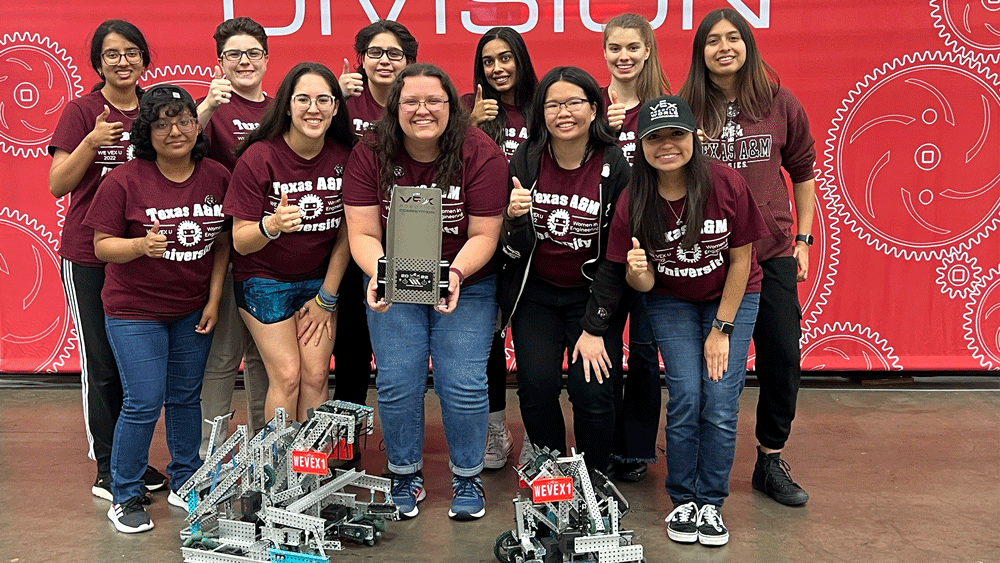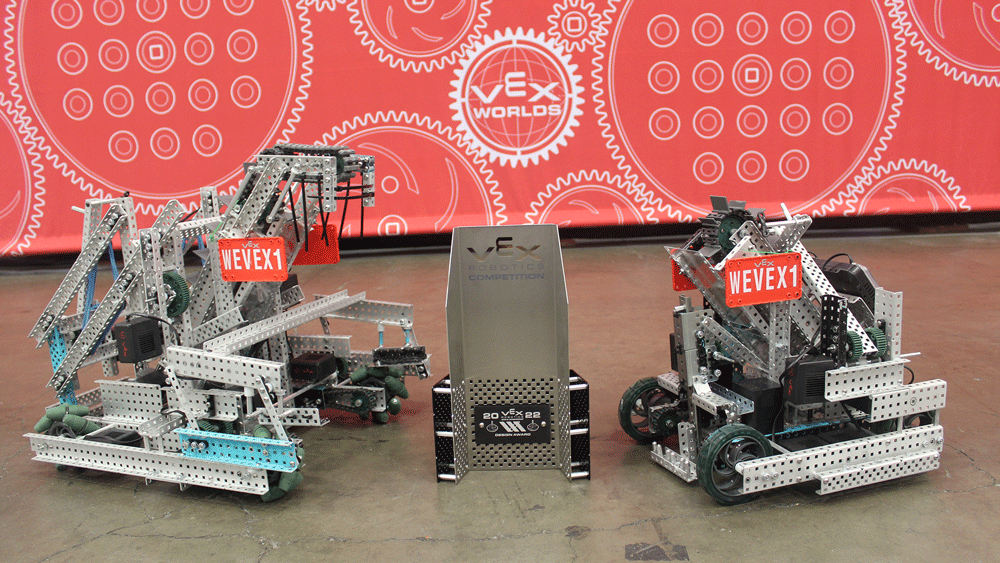
During the first week of May, the WE VEX-U Robotics team from Texas A&M University, supported by the Women in Engineering (WE) program, was awarded the science division's Design Award in the VEX-U World Championship, the most distinguished award. The competition itself had 3,000 teams from 36 nations competing this year.
"It's important that our students gain a well-rounded experience by both working toward a goal and competing where they can learn from other teams," said Dr. Shawna Fletcher, director of the WE program.
This is the second time the team has qualified for the world championship, but it is the first time they have been able to go due to the COVID-19 pandemic.
"It's been really great as a senior to see everything we've worked for over four years and all the work that I've put into the team be visible and acknowledged," said the captain of WE VEX-U, Maddie Foster from the Department of Computer Science and Engineering.

This year's challenge, tipping point, required the robots to put Pringle chip-shaped rings onto the base of a mobile goal, move portable goals and elevate on platforms. This was similar to a game of horseshoe, but instead of throwing the rings, the robots carried them to the goal, and the goal was moving. WE VEX-U had two robots — one big and one small. The goal for each robot was to hold at least one mobile goal and be able to pick up the rings.
"The design award is specifically for building a good program; it's something that's going to last," said Foster. "Having that quality of design that we've come up with together, it was really great to see our team come together and be recognized for all the work that we've done."
The team consisted mostly of first- and second-year students with little coding experience, but Foster implemented a developmental method she had learned in her computer science classes: teach, implement and test.
Throughout the year, peer mentors first taught the new members how to operate the programs used to design the robots, how the robots are manufactured and how to use the C++ coding language. Next, they implemented what they had learned into different projects. Finally, they tested each component to see what worked and what needed to be worked on.
"When students participate, you see the learning curve," Fletcher said. "They quickly learn and grow as team members and leaders." The WE program thanks its industry sponsors, Chevron, L3Harris, BP, Lockheed Martin and others, for making project teams possible. Visit here for more information on supporting WE or project teams.